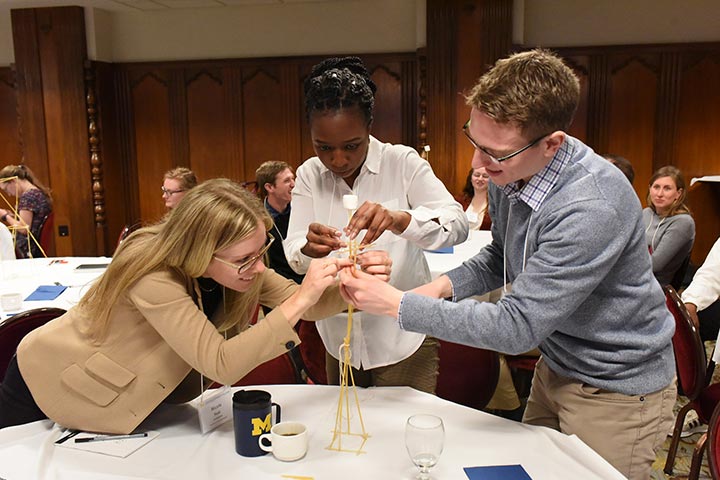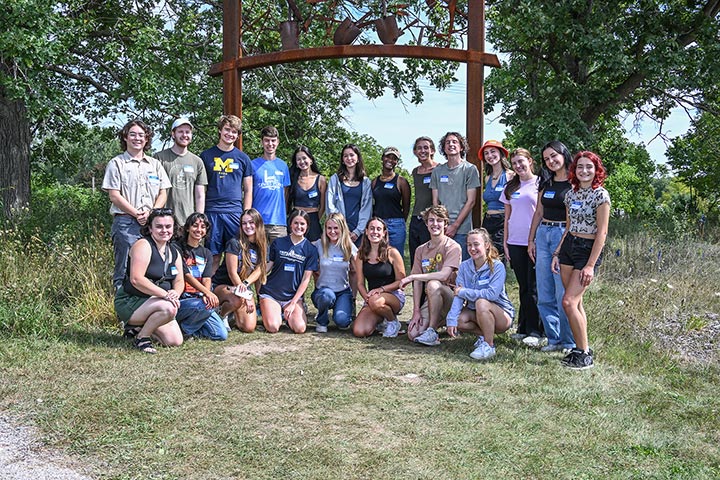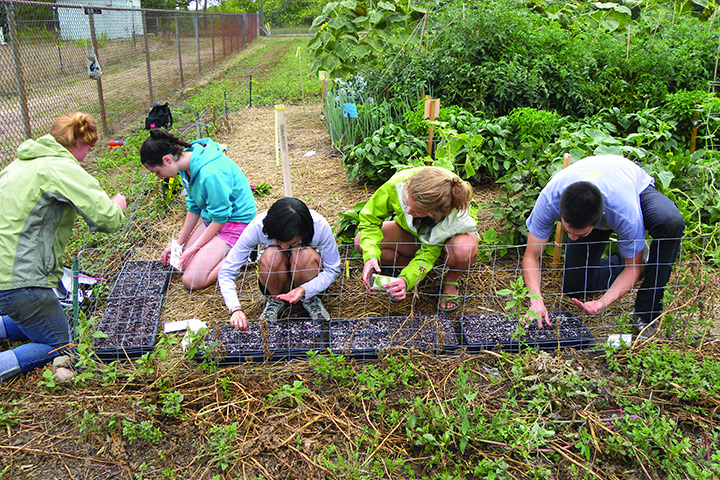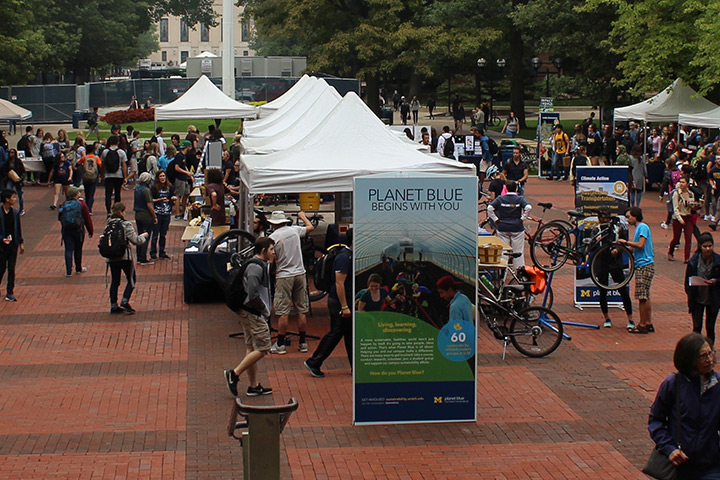Students & Community
Graham develops sustainability leaders from across U-M’s three campuses, welcoming participants who reflect the diversity of the communities they will serve. We cultivate an intentional cycle of engagement, mentorship, and lifelong learning with alumni and emeriti of our programs and are committed to supporting the sustainability goals of our colleagues and partners. Our student and community programming connects and amplifies disparate sustainability efforts across and beyond U-M.
Graham’s community sustainability portfolio includes nearly 150 projects and initiatives. Here is a sampling of our work.

Campus Sustainability Advocates Number More Than 8,000
Planet Blue Ambassadors (ongoing) is a university-wide program that cultivates student, staff, and faculty leaders who promote and model sustainability practices on and off campus and throughout their careers. Established in 2011, the program is now more than 8,000 ambassadors strong. In FY2022, university leadership extended the program to include the Flint and Dearborn campuses.

One-of-a-Kind Program Emphasizes Engagement, Interdisciplinarity
Since its inception in 2013, the Dow Sustainability Fellows Program (ongoing) has addressed the challenges of creating a sustainable world through various lenses, from academics and collaboration to change-making. Each year, 34 graduate students work with external clients in interdisciplinary teams, applying this unique approach to solve real-world problems.

Proven Sustainability Leadership Development for Undergraduates
Through rich co-curricular experiences, Graham Sustainability Scholars (ongoing) learn to incorporate sustainability into their respective campus, lifestyle, discipline, and community. Each year, 25 interdisciplinary undergraduates are supported, challenged, and inspired by one another and their program mentors. These experiences foster leadership, enhance coursework, and provide key skill-building for fruitful careers.

Peer-to-Peer Leadership and Mentoring
Under the auspices of Graham and Student Life, the Student Sustainability Coalition (ongoing) is a group of student leaders dedicated to promoting a sustainable campus culture by building peer-to-peer connections, fostering new partnerships, and amplifying initiatives already underway. Their Student Sustainability Leader Summit is the flagship of many efforts that bring students together to learn, grow, and explore sustainability.

Graduate Student Ingenuity Gets Supported, Rewarded
The annual Dow Distinguished Awards Competition (ongoing) provides support and funding of up to $60,000 each calendar year for projects managed by interdisciplinary graduate student teams that focus on challenges external to U-M, including applied sustainability projects at the regional, national, and global levels. Teams work with external partners on complex, multi-faceted projects that enhance quality of life.

Funding for Campus Sustainability Has Memorable Outcomes
The Planet Blue Student Innovation Fund (ongoing) provides our community with up to $50,000 to support ambitious student-led projects that reduce U-M’s environmental footprint and promote a culture of sustainability on campus. The 30+ past PBSIF projects include U-M sustainability hallmarks such as the Campus Farm, the Maize & Blue Cupboard, the Straw Bale Building, and the Food Recovery Network.

Funding at the Intersection of Sustainability and DEI
Social and Environmental Sustainability Grants (ongoing) of up to $2,500 are awarded by the Student Sustainability Coalition to student organizations working on small-scale projects, events, or initiatives that emphasize the intersection of environmental sustainability with diversity, equity, inclusion, justice, and access (DEIJA). SES grants have funded a variety of innovative, intersectional, student-led projects.

Longitudinal Study Fosters a Culture of Sustainability
The Sustainability Cultural Indicators Program (SCIP) (ongoing) is a groundbreaking effort designed to inform educational programs and campus operations at U-M. Questionnaires have been administered to the U-M Ann Arbor campus community regularly since Fall 2012 and were introduced to the Flint and Dearborn campuses in 2021. SCIP has served as a model for colleges and universities across the globe.